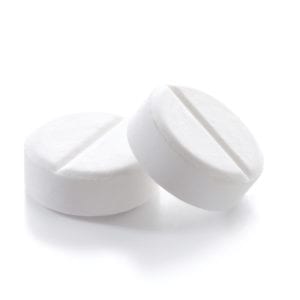Serotonin syndrome occurs when you take medications that cause serotonin to accumulate in your body.
Your body produces serotonin naturally. A certain amount of serotonin is essential for proper nerve and brain function but too much of this chemical can cause mild to severe symptoms.
Taking certain medications can increase serotonin and cause symptoms that range from barely noticeable to severe. If not treated, serotonin syndrome may even result in death.
Causes of Serotonin Syndrome
Serotonin syndrome is a predictable consequence of taking too much of any medication that raises serotonin levels. Serotonin syndrome may occur after you start taking a new drug or increase the dosage of a drug you are already taking. Certain dietary supplements and illegal drugs, especially ecstasy and LSD, may lead to serotonin syndrome. Serotonin syndrome is more likely to develop when you start a new medication or increase the dosage.
Although it is possible to develop serotonin syndrome after taking just one medication, the National Library of Medicine (1) notes that the condition occurs most often after taking two drugs that affect the body’s serotonin levels. You could develop serotonin syndrome if you took triptans to treat migraines, for example, along with the antidepressant medications known as selective serotonin reuptake inhibitors (SSRIs) and selective serotonin/norepinephrine reuptake inhibitors (SSNRIs).
Other types of medications can work with antidepressants, SSRIs, and SSNRIs to cause serotonin syndrome, including the painkiller Demerol, some types of cough medicine and an older type of antidepressant, known as monoamine oxidase inhibitors (MAOIs).
Symptoms of Serotonin syndrome
The symptoms of serotonin syndrome usually appear within hours of taking a new medication or an increased dose of a drug you are already taking.
Signs and symptoms of serotonin include:
- Agitation, confusion, or restlessness
- Rapid heart rate
- High blood pressure
- Dilated pupils
- Loss of muscle coordination
- Twitching muscles or muscle rigidity
- Sweating, often profusely
- Diarrhea
- Headache
- Shivering, goose bumps
Signs and symptoms of severe, potentially life-threatening serotonin syndrome include:
- High fever
- Irregular heartbeat
- Seizures
- Unconsciousness
What to do if you think you have Serotonin syndrome
If you have recently started taking a new medication or increased the dosage of a drug you are already taking, and are experiencing signs or symptoms of serotonin syndrome, contact your doctor immediately. Seek emergency treatment immediately if you experience symptoms of severe serotonin syndrome.
Mild Symptoms
Milder cases of serotonin syndrome usually resolve within a day or so of stopping medication or lowering the dosage. Patients with moderate to severe serotonin syndrome need medical treatment. In some cases, patients need to take drugs that block serotonin.
The drug Periactin blocks serotonin production. Valium, Ativan, and other medications can decrease agitation, muscle stiffness, and seizure-like movements associated with the syndrome. Intravenous fluids also help may be required.
Severe Symptoms
Patients with severe serotonin syndrome may require a breathing tube and medications to paralyze muscles to prevent further damage to body tissues. Uncontrolled muscle spasms associated with serotonin syndrome can break down muscle tissue. This tissue then passes through the kidneys, where it can cause kidney damage. This condition is reversible with treatment.
Without treatment, patients may get progressively worse. Fortunately, treatment can usually reverse serotonin syndrome within 24 hours.
Sources:
(1)Serotonin syndrome: MedlinePlus Medical Encyclopedia. (n.d.). Retrieved March 27, 2015, fromhttp://www.nlm.nih.gov/medlineplus/ency/article/007272.htm











